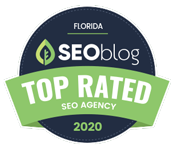Google Ads for Doctors: A Beginner’s ROI Blueprint
Google Ads for Doctors: A Beginner’s ROI Blueprint explains everything you need to know about PPC management for small businesses. Discover tips, examples, and strategies to get better results specifically tailored for doctors and healthcare practices.
Welcome to an in-depth guide on PPC management for small businesses. This article presents a full spectrum of topics to assist you in gaining measurable results, whether as a doctor starting your first campaign or a small private clinic looking to get more patients. The month of April 2025 views the digital landscape as being more competitive than ever. Doctors and small healthcare practices can’t afford to approach PPC advertising blindly, especially when their competitors are targeting the same patients with laser-focused ads.
This guide covers everything from setting up your very first campaign in Google Ads, to knowing how patients behave in searching, to picking keywords wisely. It’ll carve a tested path to ROI improvement followed by adherence to all regulatory and ethical standards common in the healthcare sector. You’ll walk away with actionable strategies for building profitable PPC campaigns, optimizing current efforts, and avoiding the biggest errors medical practices fall into when handling Google Ads alone.
What is PPC management for small businesses?
PPC management is a comprehensive term to describe all of the tasks required for overseeing and fine-tuning paid search campaigns to allow for maximum return on investment. These small medical businesses usually use Google Ads to attract traffic towards the website or landing page to ensure that visitors convert to patients.
PPC helps a medical practice appear at the top of search results immediately, whereas organic marketing slowly builds the result. But now, mere immediate visibility isn’t enough for successful PPC management for small businesses: success is now defined by choosing the right keywords, writing the right ad copy, being agile with the bidding strategy, and constantly improving from landing page conversions.
Whether advertising flu shots, dermatology screenings, or telemedicine services, an effective PPC campaign will place ads in front of local consumers actually searching for those services. Since sheering patient needs since late, the specificity of time is of essence. When someone searches for “urgent care near me open now”, they are not looking for an educational site about urgent care. They are ready to go. And that’s when well-managed medical PPC advertising truly brings in the return.
Elements of Effective PPC Management
- Keyword Research: Use tools like Google Keyword Planner to find high-intent terms such as “pediatrician near me,” “same-day dental appointment,” or “walk-in allergy clinic.” These keywords often indicate a strong readiness to book an appointment.
- Geotargeting: Narrow your ad reach to the communities you serve. There’s no point paying for clicks from cities where you don’t operate.
- Ad Copywriting: Your messaging should be addressing the user’s immediate need. Advertise the USPs like the organization being board-certified, accepting new patients, or covered by most insurance providers.
- Landing Page Optimization: Make sure the users land on a page that fulfills their intent with a contact form and appointment booking, with easy navigation for mobile phones.
- Budget Allocation: Maintain small-scale daily budgets initially and increase them according to campaign performance, in terms of click-through rates or cost per acquisition.
For doctors especially, platform-specific policies matter. Google Ads requires specific disclaimers and follows rules for advertising healthcare-related services. This is why working with experts in medical PPC advertising becomes essential—just one violation of ad policies can lead to your ad account being suspended.
Why PPC management for small businesses Matters for Paid Advertising Strategy
In the larger context of Paid Advertising Strategy in 2025, small businesses—especially private medical practices—can’t rely on word-of-mouth or passive referrals alone. With more patients searching online for immediate services and specialist care, targeted advertising via Google Ads becomes one of the most efficient ways to attract new business. Yet, without a tailored approach to PPC management for small businesses, ad spend can quickly balloon with little return.
When it comes to medical PPC advertisement, it’s about placing the right service-oriented marketing message on the right audience in the right time. An example: a dermatologist may advertise seasonal skin-care treatments during spring and summer, while a pediatric clinic might advertise back-to-school checkups in August. These campaigns are not just random; they actively rely on the data concerning search behavior patterns associated with seasonality, geography, and patient demographics.
A common error many healthcare providers make is assuming general marketing advice applies universally. Small businesses in the medical field face unique challenges:
- Strict patient privacy concerns (HIPAA compliance)
- Higher cost-per-click (CPC) than many industries
- Medical service-related keyword competition from hospitals and national chains
- Regulatory scrutiny over misleading or non-compliant medical claims
Effective PPC management addresses each of these with tailored strategies—whether it’s leveraging ad extensions like call scheduling, implementing negative keyword lists to avoid unqualified traffic, or split-testing ad variations to find the most persuasive copy.
Consider this: A practice that spends $500/month on Google Ads without optimization will likely generate fewer conversions than a practice spending the same amount but executing a professionally managed PPC strategy. The difference of a 3% vs a 10% conversion rate could mean dozens of additional patients every month.
Still unsure whether PPC is worth it for your clinic? Ask yourself the following:
- If searching on Google, would a service-bearing competitor be placed on the first page of the search engine result page (SERP) in your locality?
- Are you relying on insurance referrals and walk-ins a bit too much?
- Are you tracking which marketing sources generate the most appointments?
If you answered “yes” to any of the above, then it’s time to rethink your Paid Advertising Strategy and focus on results-optimized medical PPC advertising.
Best Practices for PPC Management for Small Businesses
Small businesses tend to work with limited budgets and human resources; thus, every dollar spent on advertising should be maximized. A creatively constructed PPC management strategy helps small businesses acquire targeted publicity at the lowest prices possible. Below are some best practices that will probably allow you to really enhance your results:
- Set Clear, Measurable Goals: Whether it is getting more foot traffic into a local shop, generating leads for professional services, or getting an e-commerce sale, having set KPIs of CTR (the click-through rate), conversion rate, and ROI keep the campaign on track.
- Focus On High-Intent Keywords: While generic SEO strategies target low commercial-intent keywords, proper PPC management for small businesses focuses mainly on search terms with strong commercial intent. In medical PPC, for example, terms such as “same-day urgent care near me” or “pediatric dentist open now” are likely to yield better conversion rates.
- Geo-Targeting: What geo-targeting does is really quite simple: it establishes who will be able to view the ads based on geographical constraints. This comes as a handy feature for businesses and medical centers set to attract customers or patients that are nearby.
- A/B Test Different Variants of Ad Copy and Landing Pages: Ads stay fitter the longer they are amended and improved. Constantly A/B testing different headlines, descriptions, and calls to action will teach you which ones best speak to your audience.
- Always Measure Performance: Every week, carve out time to go through ad performance. Look at cost-per-click (CPC) data, impression shares, and conversion rates. Informed decisions should be made with regard to bids, keywords, and targeting.
Industry Spotlight: Medical PPC Advertising
Anything relating to PPC advertising for medical services represents one of the most effective uses of PPC management for small businesses. Providers, clinics, and specialists use PPC when target patients are actively searching for treatments and consultations. In this high-stakes arena, the paid advertising strategy, when done well, serves as a bridge for patient intent to provider presence.
How PPC advertising for the medical field increases local reach for healthcare:
- Immediate Visibility: Patients don’t typically shop around for medical providers in the same way they do for retail products. Being the first result on an SERP can increase the chances of appointment bookings.
- Emergency Services: For immediate care needs like urgent care or dental emergencies, people click on the first ad they consider highly relevant. So, PPC ads give clinics a chance to appear at just the right moment.
- Regulatory Adherence: Sometimes advertising in the medical field is like threading a needle amongst HIPAA and state health rules. Properly done PPC can keep you inside the lines with big reach and efficacy.
- Location-Specific Services: Medical PPC advertising allows you to geo-target campaigns to your actual service area-no dollars spent on impressions outside your geographic range.
Case Study: Local Family Practice with PPC Growth
Now, let me give you an example for the sake of a story. Picture Green Valley Family Clinic, a little neighborhood practice nestled in suburbia. Their site carried tumultuous traffic and below-expectation conversions in patients before PPC management went about its commission. After the intervention of a medical PPC advertising specialist, the emphasis of their campaign restructuring was laid on:
- Localized keywords like “family doctor in Green Valley” and “affordable allergy tests nearby”
- Ad schedules aligned with business hours and peak patient searching times
- Refined ad copy and professional landing pages with clear calls-to-action
Over a half-year period, the clinic witnessed a 40% growth in appointment bookings through online advertisements and lowered its CPC rates by 25% through ongoing optimization. This shows how managing pay-per-click (PPC) can convert digital exposure into brick-and-mortar growth for small practices.
Overcoming Common Challenges in PPC for Small Businesses
Many positives exist while managing PPC for small business, but these positives can also present challenges. Knowing these difficulties and addressing them early on can help prevent long-term damages:
- Limited Budget: Unlike the large enterprises, the small business owners have to be selective in terms of ad spending. Environment campaigns that promise the highest returns are those worth spending each dollar on.
- Lack of Knowledge: PPC platforms such as Google Ads are extremely complex. Small business owners must now, more than ever, consult an expert or use an automation tool to quickly optimize their campaigns.
- Ad Fatigue: When prospects see the same ads an infinite number of times, the click rate decreases. The creatives must be rotated, and the messaging must be refreshed to keep genuine interest alive in the long run.
Integrating PPC With Organic Strategy
Though PPC provides instant results, its paid strategies coupled with organic SEO build a long-term framework for digital visibility. PPC management must be seen by businesses not as a stand-alone marketing tool but rather in conjunction with other tools such as website optimization, content marketing, and email campaigns.
Where PPC provide immediate results, they can be used for quick feedback as to which messages, keywords, and offers are working best so that these are then used for content creation and SEO approaches. The interaction suits small businesses to keep consistent engagement while scaling intelligently in sectors such as health where trust and authority are key.
Getting the Most Out of PPC Management for Small Businesses
To fully optimize the marketing spend, small business owners must set up a long-term PPC management strategy. Such strategy covers not only launching ad campaigns but also managing those campaigns by constantly refining them based on correct performance data in real time. Competitors in any viable fields like healthcare must still ensure that medical PPC advertising is more stringent with an array of requirements. Besides, if anything gets missed, it eventually may cause the loss of opportunities and blow away that advertising budget.
Consistency and adaptation are key for small business PPC management. Monitoring, A/B testing, and making improvements based on the data keep you one step ahead of the competition. The initial work might take some effort, but the outcome you get is enhanced visibility, better lead quality, and improved ROI.
How Medical PPC Advertising Benefits from Targeted Strategy
The importance of specificity is increased manyfold when we are talking about medical PPC advertising. You are not just marketing a generic product; you may be marketing very sensitive, trust-based services such as dentistry, dermatology, or emergency services. Each medical ad must adhere to stringent industry regulations and must appeal to individuals seeking trustworthy assistance.
This makes having an experienced PPC partner all the more vital. For example, accurately implementing HIPAA-compliant landing pages, crafting ad copy that passes platform guidelines, and targeting high-intent medical keywords all require expertise. By leveraging professional PPC management for small businesses focused on the medical sector, your ads are more likely to generate quality leads—people actually looking for your unique offerings.
Performance Metrics to Watch
For small businesses, there are a few KPIs (Key Performance Indicators) they should focus on when measuring the success of PPC:
- Click-Through Rate (CTR): Measures how persuasive the ads are.
- Cost Per Click (CPC): Shows how much is spent in driving traffic to a website.
- Conversion Rate: Tracks what percentage of ad clicks lead to a desired action (such as bookings or purchases).
- Impression Share: Let’s you know how often your ads are being viewed in competition with others.
It pays to monitor these figures on a regular basis so as to understand if your PPC budget is really earning its way. And if not, adjustments can be made to the ad creatives, keyword targeting, or bid strategy that have great chances of success.
When to Hire a PPC Agency
Most small businesses start off by managing PPC on their own on platforms like Google Ads and Bing Ads. However, as campaigns gain in complexity, it is often more efficient to seek the assistance of a professional agency. If ad performance troubleshooting is taking precedence over your actual business, then it’s probably time to bring in an expert.
Link2City offers PPC management services for small businesses, having particular competence in specialized disciplines such as medical PPC advertising. Our tested methods help generate real growth and increase your ROAS while liberating you time to focus on what you do best: running your office or business.
Common Mistakes to Avoid
Some of the typical mistakes that are stopping even the best intentioned PPC campaigns from succeeding are:
- Neglecting negative keywords
- Not testing multiple versions of the ad (A/B Testing)
- Using broadly matched keywords without checking them out
- Sending traffic to a landing page that does not match the message of the ad
In following a set step-by-step approach to managing PPC, small businesses can avoid these traps and give advertising dollars a bigger bang for their buck!
Frequently Asked Questions
What is PPC management for small businesses in simple terms?
PPC management for small businesses is a strategy or concept used to improve medical PPC advertising by focusing on structured, intentional methods.
How does PPC management for small businesses help?
It helps improve performance by aligning your content with search behavior and industry best practices.
Can I apply PPC management for small businesses myself?
Absolutely. With the right tools and structure, even beginners can begin applying these principles effectively.
What tools should I use?
Start with Google Search Console, SEMrush, and keyword research tools. These provide visibility into how PPC management for small businesses impacts performance.
Next Steps
Successful PPC management for small businesses isn’t about spending more—it’s about spending smarter. If you’re ready to increase the quality of your leads while minimizing ad waste, call on the experts.
Claim your ad performance review and find out how your campaigns measure up. Our team will provide actionable insights tailored to your market segment, whether you’re in medical PPC advertising or another niche industry.





























